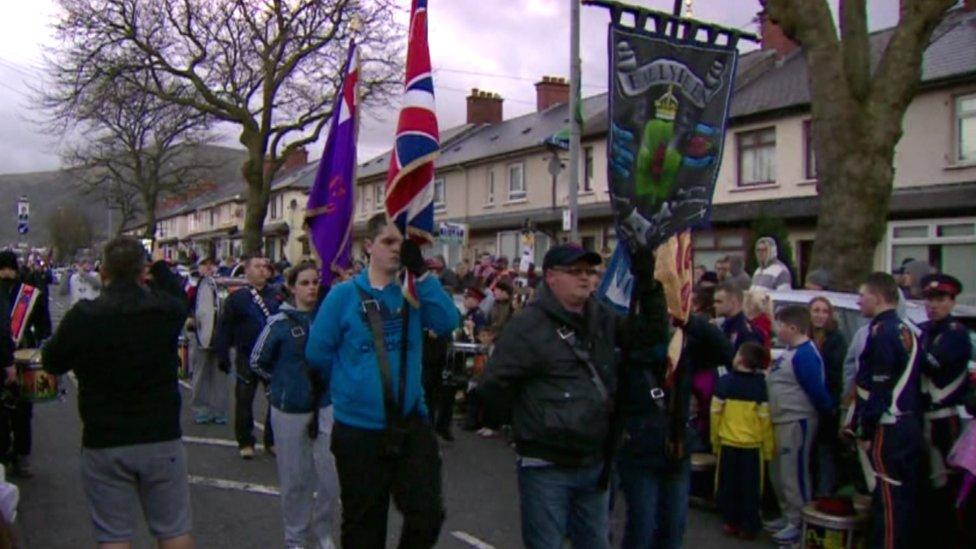Agreement over Belfast Orange parade breaks down
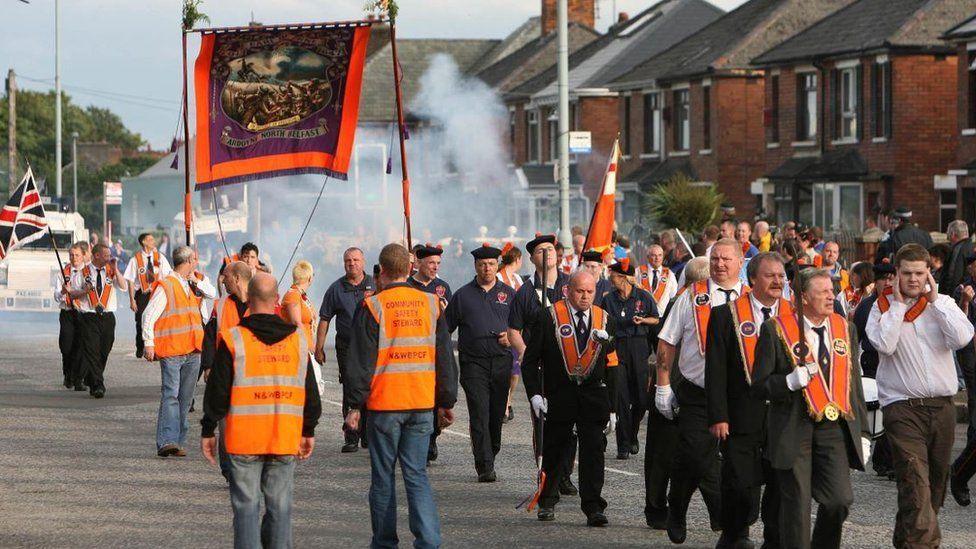
- Published
An agreement which ended violence around an Orange Order parade dispute in north Belfast has collapsed.
Talks to maintain the 2016 deal broke down last week, with a march past Ardoyne shops now being sought on the evening of 12 July.
A protest by a nationalist residents’ group is planned in response.
The Parades Commission will rule on the matter in two weeks’ time, with the police monitoring developments closely.
The Ligoniel Loyal Order has applied for a march involving one band and about 100 participants, scheduled to leave Belfast city centre at 1830 BST and conclude by 2100.
The route would involve Crumlin Road, passing Ardoyne.
Crumlin Ardoyne Residents Association (Cara) has applied for a protest involving 100 people at the same time.
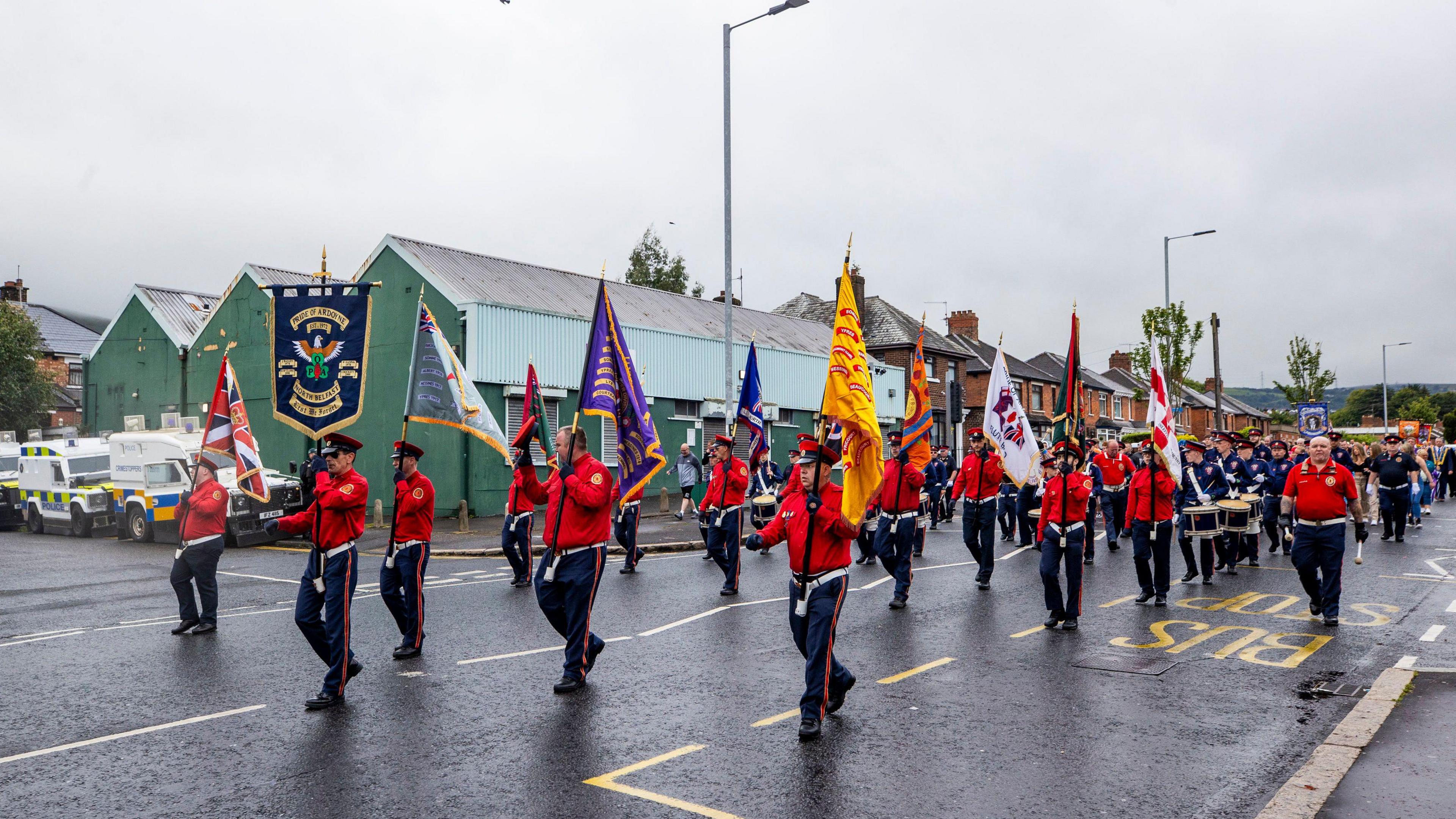
The Pride of Ardoyne flute band parading passed Ardoyne shops in north Belfast ahead of the annual Orange Order 12 July parade in 2023
The Order claimed the Cara had “weaponised” engagement and accused them of “bad-faith dialogue.”
Earlier, Sinn Fein north Belfast MLA Gerry Kelly said it was “deeply concerning” that a parade has been applied for.
“Sinn Féin will continue to stand with residents in their opposition to this parade which contravenes the 2016 agreement,” he added.
The 2016 deal was struck between a number of Orange lodges and Cara, and defused what had become one of Northern Ireland’s most contentious parading situations.
Cara undertook not to object to any existing morning parades, which usually take place about 08:30.
In return, the lodges agreed to a “voluntary moratorium” on applying for evening return parades.
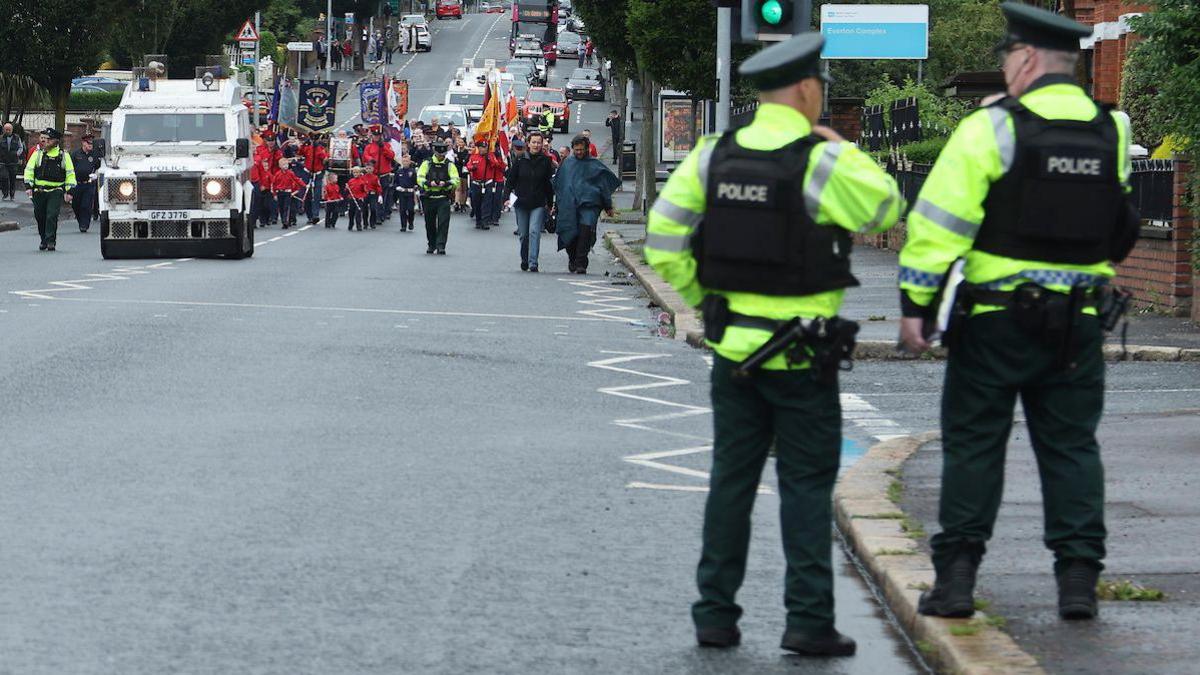
Police at the Ardoyne shops in North Belfast as a parade passed for the Twelfth of July in 2023
The agreement stated: "This moratorium would allow for a process between the lodges and Cara to seek agreement on future return parades and if agreement is achieved, the moratorium would be lifted.”
The agreement almost faltered last year, when there were applications to parade past Ardoyne shops in the evening.
However, the situation was defused and none took place.
'Bad faith dialogue'
Now the Orange Order has said the 2016 deal has broken down.
In a statement, Spencer Beattie, Belfast County Grand Master, said: “Hundreds of hours of work and dozens of face-to-face discussions have been undermined by Cara, who have weaponised the dialogue process.
“This cynical and malicious refusal to allow the three local Orange lodges and their Protestant neighbours the right to return home is a flagrant breach of the agreement and a blatant disregard for the most fundamental of human rights.
“Regrettably, this bad faith dialogue on the part of Cara has meant a collapse of the 2016 parading agreement.”
He added the Order is “resolute” on a “right” to a return march, “no matter the opposition or threat of violence.”
Police do not believe there is “an appetite” for disorder at Ardoyne, despite the breakdown of the long-standing deal.
Assistant Chief Constable for Local Policing Bobby Singleton said police would be "prepared and will work with all parties irrespective of any decision made by the Parades Commission to deliver a public safety operation.”
'A step backwards'
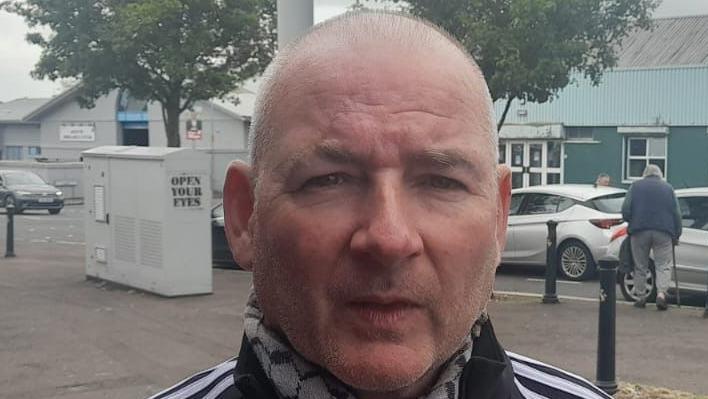
Ardoyne resident Fra Hughes has called on the Parades Commission to not allow the parade to go ahead
Ardoyne resident Fra Hughes said there has been "relative peace" in the area since the marches stopped.
Mr Hughes has called on the loyal orders to stop circumstances that "could lead to intercommunal violence," he said.
"To try and come back up here on the 12th of July is a step backwards. It's a step back into history and no-one here wants it."
'Let them have it'
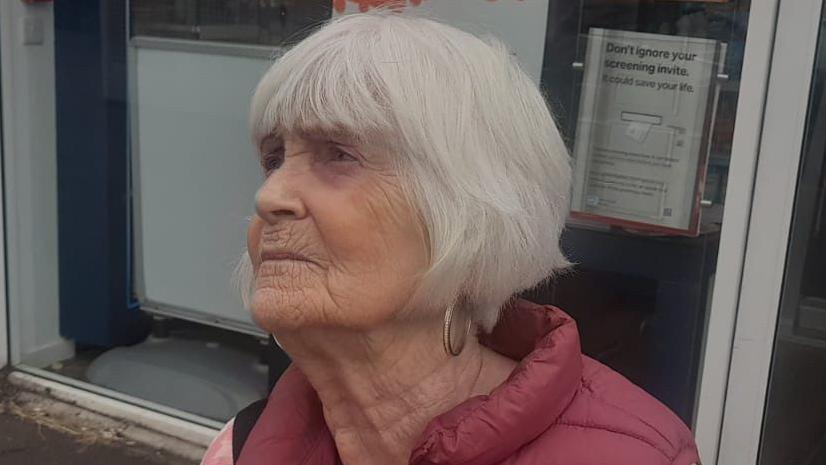
Ardoyne resident Anne said there are other things to worry about
Ardoyne resident Anne said the parade would not "annoy" her.
"I just want people to get on and live their life and there's more to worry about," she said.
"Just let them march and stay in your homes and just ignore it.
"At the end of the day we all have to live and get on with it so I'd say just let them have it."
'You can't please everybody'
Speaking to BBC Radio Ulster's Good Morning Ulster programme, a Twaddell Avenue resident said she thought "there’s no harm" in the parade returning as long as they "don’t play any music and walk by slowly and quiet" so all residents feel comfortable.
"People on the other side maybe don’t want that even either," she pointed out.
"People are very good to each other" on "both sides" in her area, but if things change "everything" might break down, she added.
"You can't please everybody."
The woman said she has enjoyed calm in the area and is concerned about violence returning.
"I wouldn’t want those days to come back."
Orange Order Ardoyne parade dispute timeline
- Published20 June 2024
The Justice Minister appealed for "cool heads" when it comes to resolving the dispute.
Naomi Long said "there is still time to resolve these issues" but everyone needs "to take a step back".
"Look at what it will do to those communities if we have a tense and difficult marching season. I don't believe that's in anyone's best interests, I don't believe it's in the interests of residents in those areas or in the interests of the loyal institutions" she added.
The Parades Commission will now take soundings before making a decision, which is currently due on 3 July.
Last year it said applications for an evening parade showed a “wanton disregard” for the agreement which had secured years of peace.
Analysis: Major implications for policing The Twelfth?
I was told that the cracks of this deal were papered over last year when parade applications were withdrawn or, essentially came to nothing but those cracks cannot and will not be papered over this summer.
Police are watching the situation closely - this could have major implications for the policing of the 12th of July in north Belfast.
As well as the violence that this parade witnessed about a decade ago, there was also a £22m policing bill over the years to attempt to keep the situation calm before agreement was put in place.
Parading in Northern Ireland has been transformed in the last decade or so.
Of course there are still parades of contention, but this situation has by-in-large been completely diffused.
But this is going to present a big challenge for The Parades Commission and the enforcement of whatever determination it makes.
Related topics
- Published24 September 2016
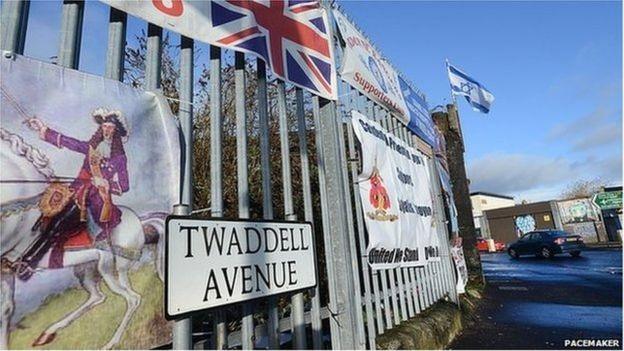
- Published7 April 2016
